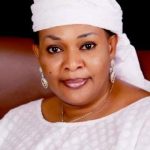...To get all news updates, Join our WhatsApp Group (Click Here)
Also Join our WhatsApp Channel (Click Here)
After Mrs kumbaya (name changed to protect her identity) lost her husband at work in 2005,she was accused of killing him. The accusation did not comefrom her husband’s brothers but his sister, who had earlier lost her own husband. It took the combined hard work of the brothers to get their sister off the back of her fellow widow. They told their sister pointedly that she too could face the same accusation she was levelling against their sister-in-law, since her husband was deceased too.
This real incident underlines one of the greatest puzzles of the twenty-first century: How people who themselves or their mother or children or relatives are victims or could be victims of the dehumanising treatment of widows condone, live with, encourage and perpetuate the horrendous denigration inflicted on widows by their in-laws.The continued existence of this kind of situation of dog eat dog, or rather man’s inhumanity to man, makes one wonderif Aristotle also considered (Nigerian) in-laws when he asserted that man is a rational animal. There is absolutely nothing rational about the dehumanisation widows are subjected to by their in-laws in this clime.
A man, who through marriage has become one with the woman he marries, dies, leaving behind his wife and five children (three boys and two girls – this fact is only being added to show that the gender of the children may not even be a factor in how the widow is treated). Almost immediately his siblings and other blood relatives swoop on whatever assets of his they can lay their hands on. If a family meeting is convened, it is not to discuss the welfare of their late brother’s wife and children, who all bear the family name as part of their extended family. No, that is an agenda item for meetings convened by angels, not in-laws of widows. What in-laws of widows convene family meetings for is to make sure they have not missed out any of the assets their late brother could have had. That is how kind in-laws are to a widow.
If Mrs Kumbaya thought her case wasgoing to be different because her brothers-in-law defended and protected herfrom their sister, then she apparently may have ascribed angelic virtues to her husband’s brothers. For, as it turned out, that act of defenceand protection fromtheir sister was the only kindness the brothers of Mrs Kumbaya’s late husband extended to her. They never helped or asked after her and her children’s welfare after that. Not evenwhen things became so difficult that she could no longer pay her house rent and ended up on the street.
Maybe Mrs Kumbaya should even count herself lucky. Stories abound of widows who had been abused, molested, raped or “shared” by in-laws as part of the property left behind by their late brother. There are stories of widows, falsely accused of killing their husbands,being locked up by in-laws inpolice cells and the keys thrown into the sea, as it were. What about widows forced to drink the water used to wash the corpse of theirhusband as proof that they had no hand in their husband’s death. Or the ones forced to spend days and nights in the same room with the corpse of their husband.
Nigeriais not exactly a safe haven for women. Whatwith the prevalence of harmful cultural orientations and practices against the female gender,such as preference of the male child to the female child, female circumcision,FGM(female genital mutilation), forced marriage and denial of inheritance, succession and other rights the male gender takes for granted.Generally, Nigeria is not a friendly environment for women, least of all widows considered to be a highly vulnerable group. In fact, Nigeria is said to be one of the least safe places for women in the world with a survey by the Thomson Reuters Foundation conducted in 2018 ranking Nigeria as the ninth most dangerous country in the world for women.
The dehumanising treatment of widows is part of what the Violence Against Persons (Prohibition) Act, passed in 2015, was intended to stop. The Act, more commonly referred to as the VAPP Act or law,
categorises emotional, verbal and psychological abuse as offences and is considered by many legal experts and advocacy groups to be a comprehensive tool for addressing all forms of violence and abuse against all persons. The law seeks to do so by providing maximum protection from violence of various forms against all persons irrespective of tribe, socio-economic class, religion and gender and offering effective remedies (financial compensation) for victims of violence and appropriate punishment (globally acceptable deterrents) for offenders.
It is not known how much of the general population, including in-laws who routinely dehumanise widows, is aware of the VAPP law. While ignorance of the law offers no excuse in a court of law, it is imperative that more enlightenment be created on the existence of the VAPP Act and all its provisions against many of the inimical practices that in-laws perpetrate against widows in the name of culture. Maybe, just maybe, some in-laws, who are themselves uncomfortable with those practices but take part because of family and community pressure, could be emboldened by knowledge of the Act to become advocates and campaigners against such practices.
Back to Mrs Kumbaya, for those concerned about her and what must have happened to her after she ended up on the street.They can heave a sigh of relief that the good Lord sent his angel in the form of the Chinwe Bode-Akinwande Foundation (CBA Foundation) and they took her off the street. Mrs Kumbaya now lives in an apartment rented for her by the Foundation, which also supplied her a mattress, other household items and food stuff.
The CBA Foundation, founded in 2015, the same year the VAPP Act was enacted, is a strong advocate for the enforcement of the Act. Along other civil society groups, it is pushing for the domestication of the Act in states of the federation that are yet to enact a similar act. Rigorous enforcement of the VAPP law across the federation will undoubtedly accelerate the mission of the Foundation, which is to promote “the protection of [underprivileged] widows and their vulnerable children in Nigeria, to promote immediate and lasting hope, confidence and courage in their lives.” The Foundation pursues its mission under its 5-point agenda of women empowerment/capacity building, health intervention, nutrition, quality basic educationand a self-employment scheme.
This piece is not intended to demonise in-laws. The writer is himself an in-law by multiples. It is to call for a change of heart and attitude in society, particularly among in-laws, towards widows, knowing that we, our mothers, daughters, neighbours, friends are or could become widows. In-laws should join public-spirited people across the country in supporting the CBA Foundation in its advocacy for enforcement of the VAPP law and in providing succour for underprivileged widows and their vulnerable children.
There are many Mrs Kumbayas out there but the resources and reach of angels such as CBA Foundation are limited. Men and women of goodwill, including in-laws who have now seen the light, can extend the Foundation’s resources and reach by supporting it in its mission. Contact the Foundation today by sending an email to them at: cbafoundationng@gmail.com.
You can get every of our news as soon as they drop on WhatsApp ...To get all news updates, Join our WhatsApp Group (Click Here)
Also Join our WhatsApp Channel (Click Here)

















